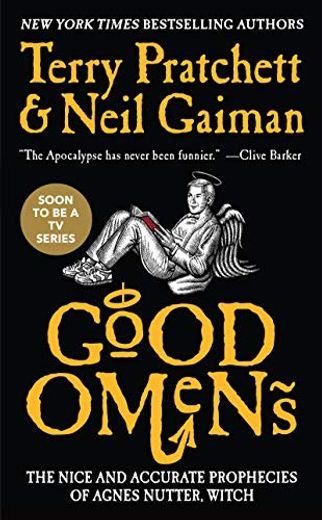
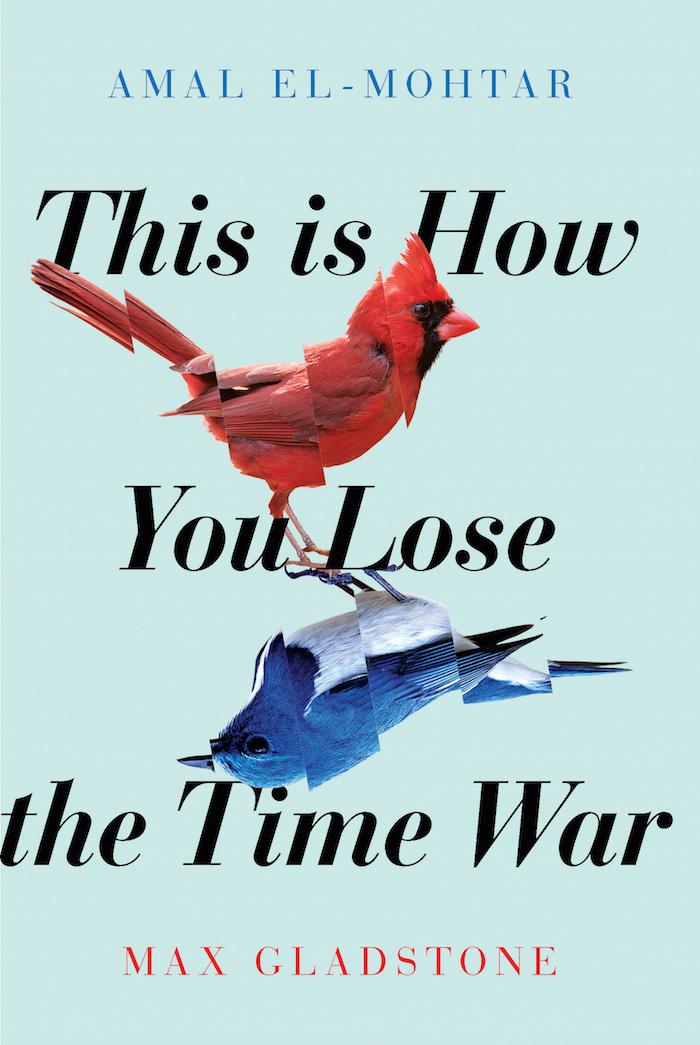
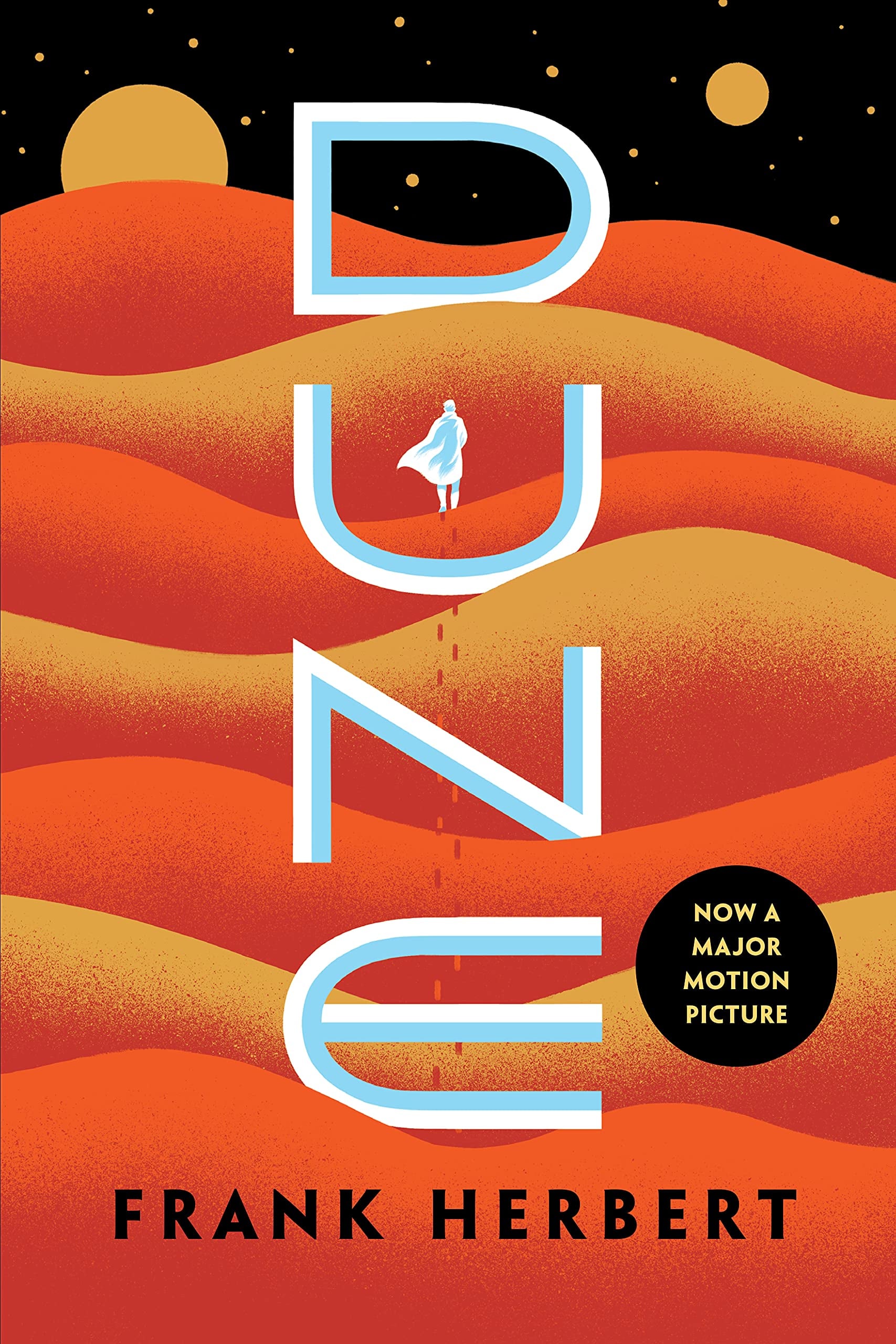
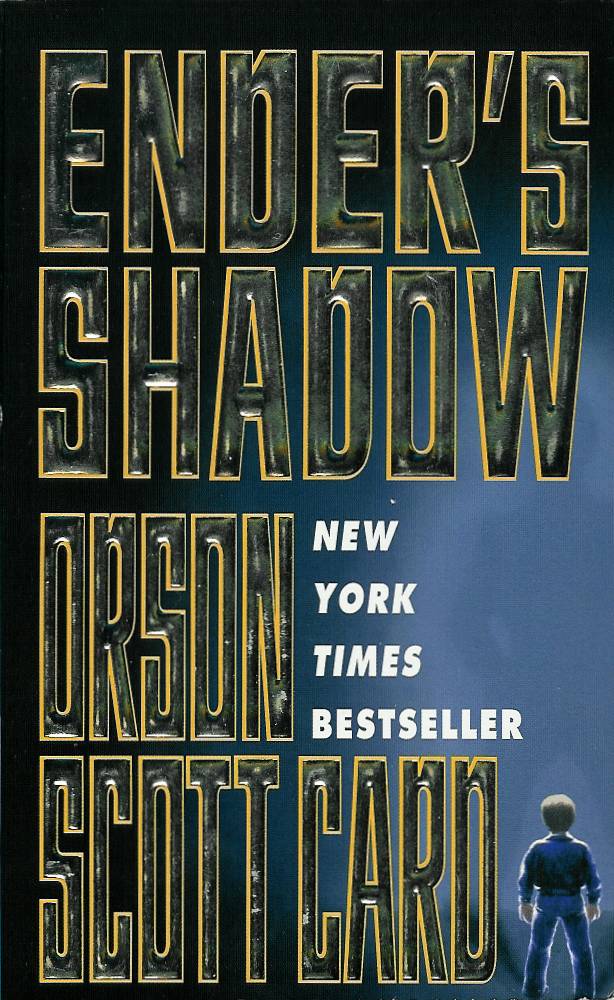
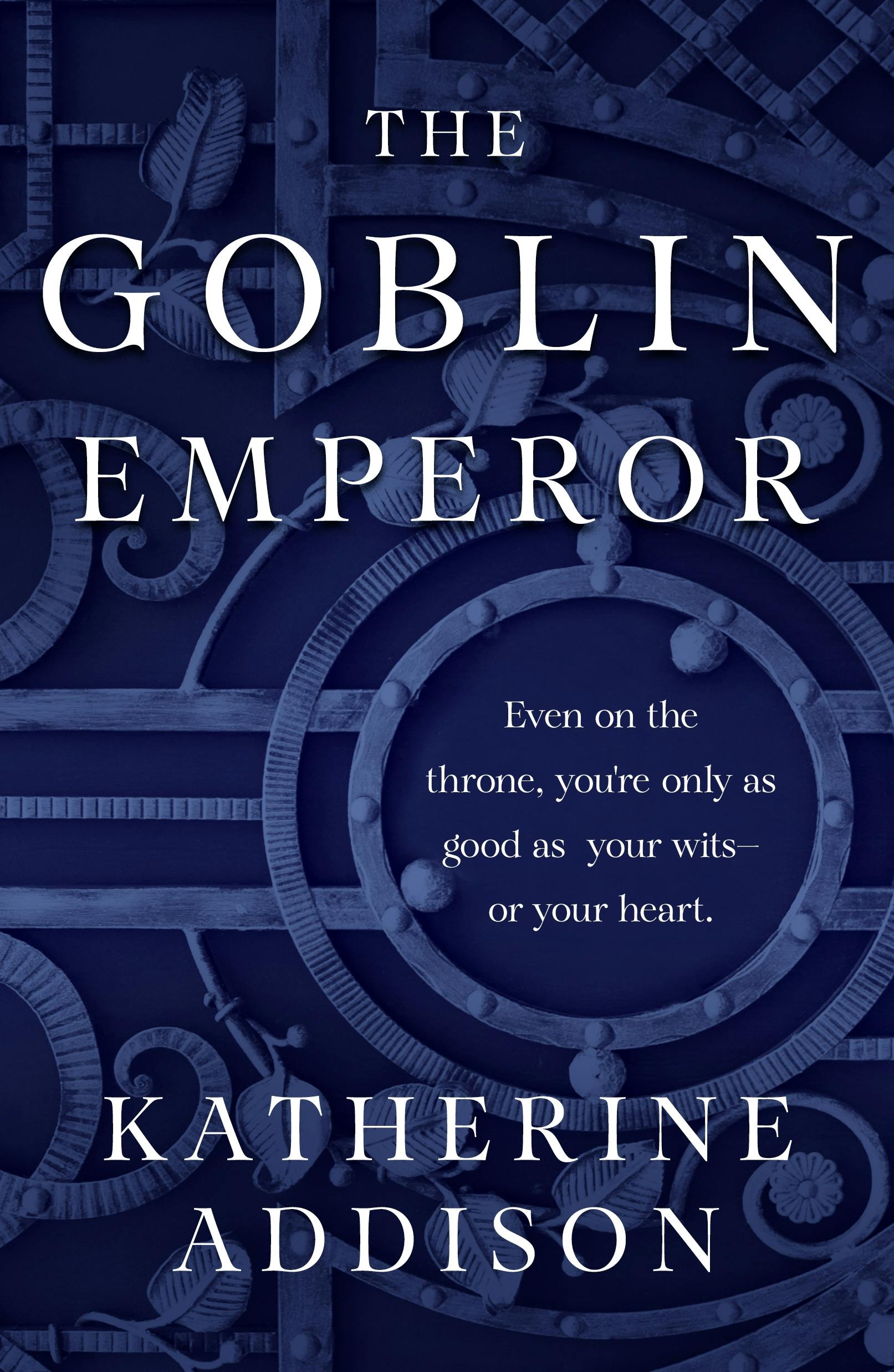
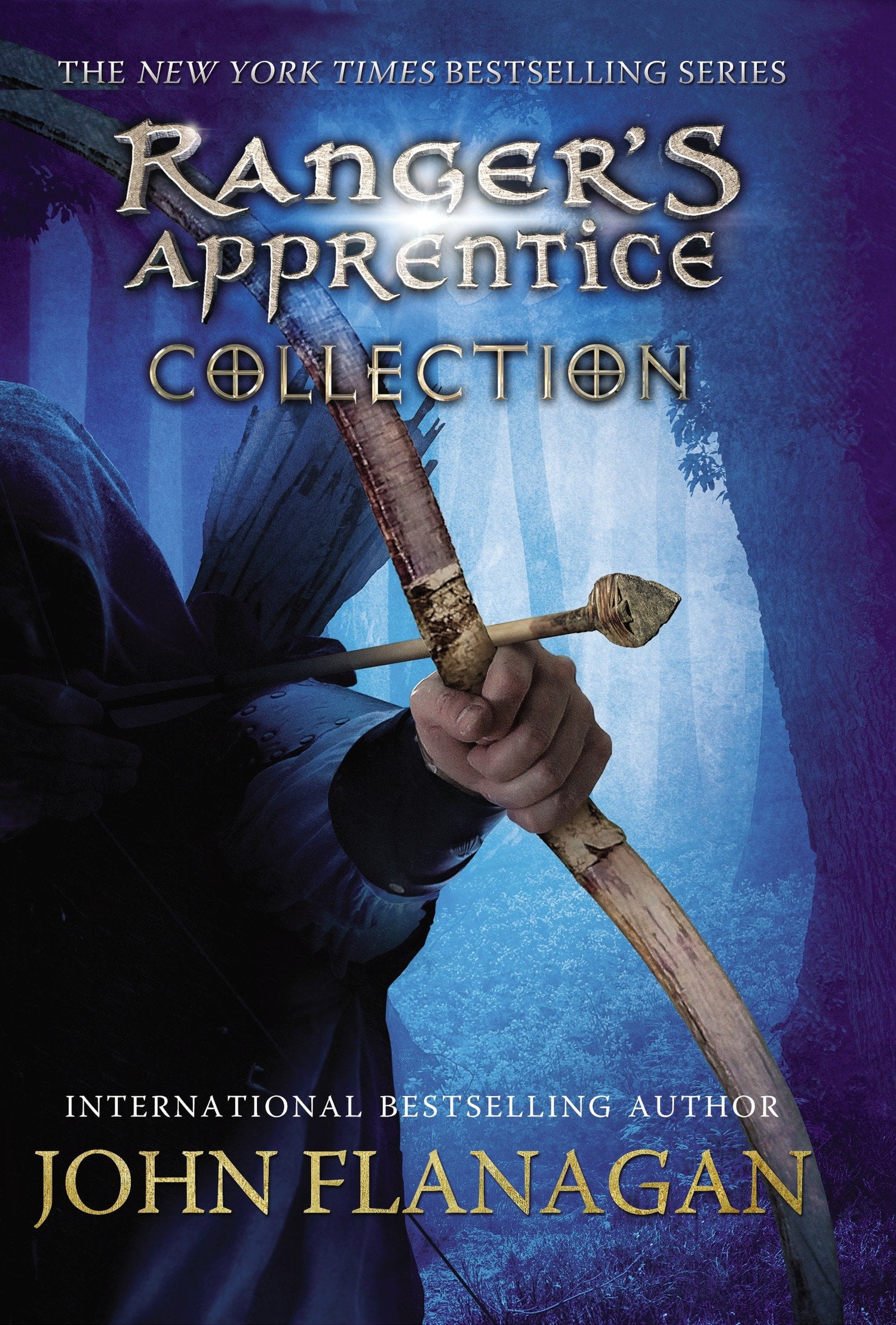
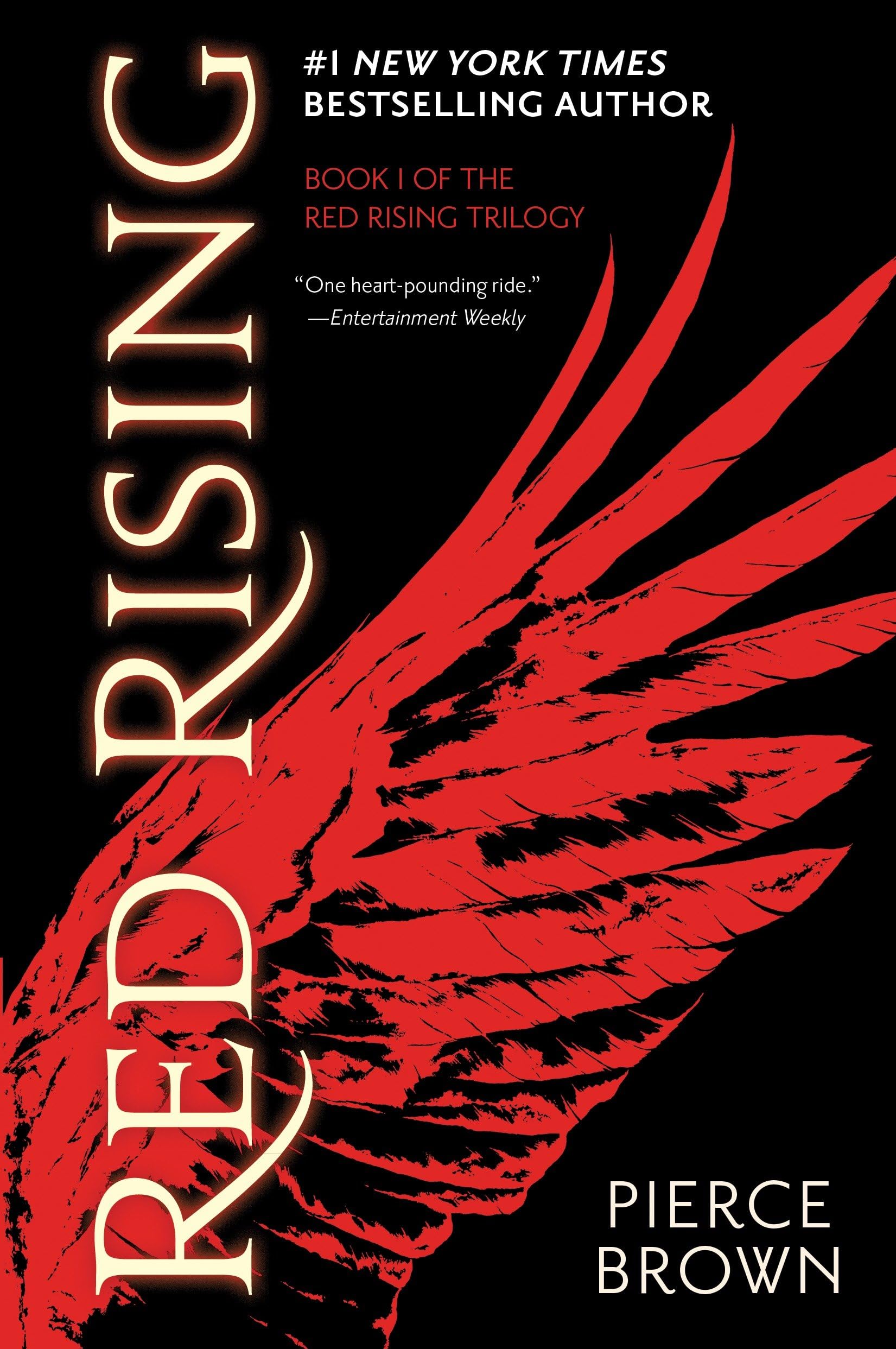
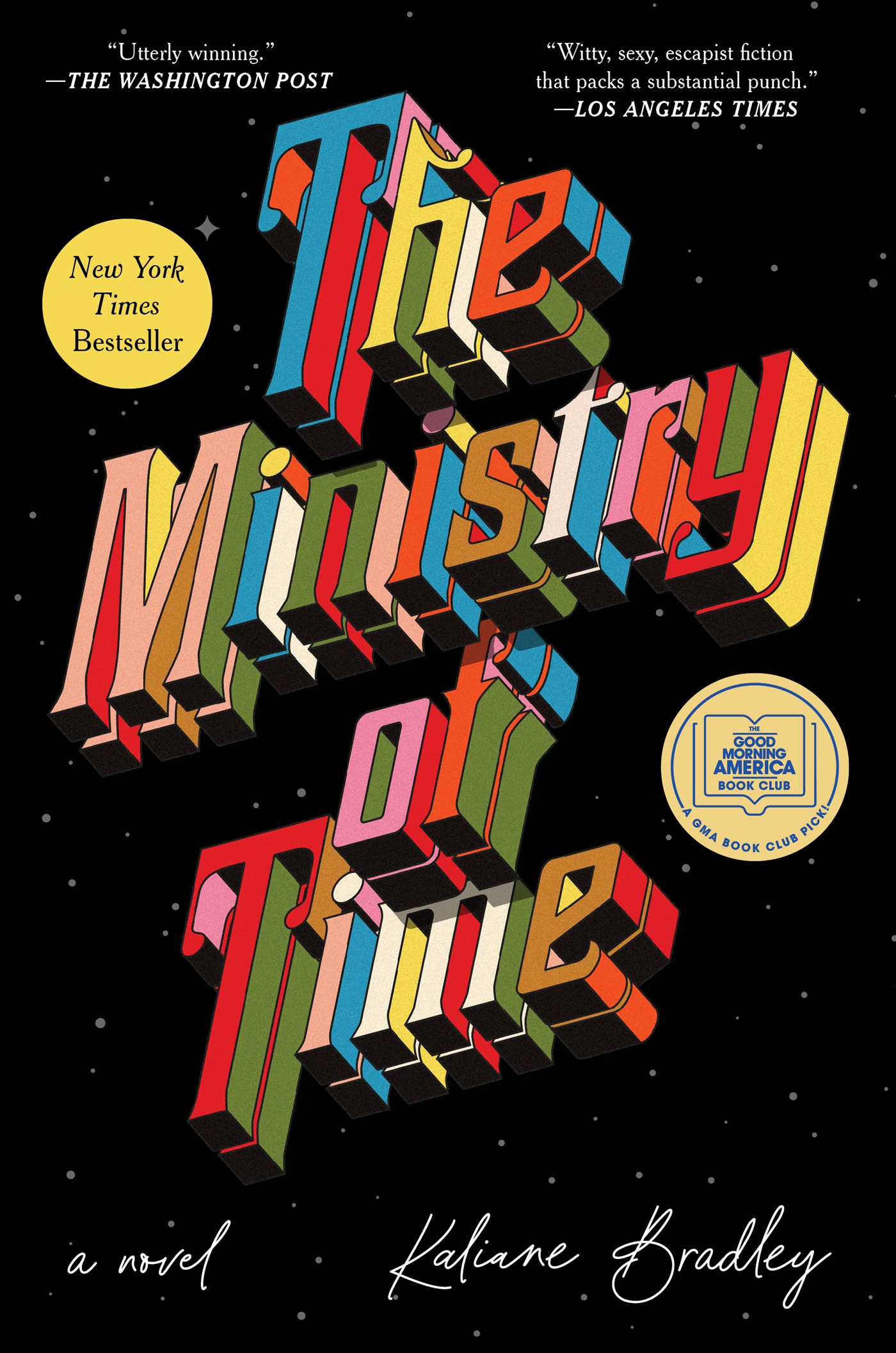
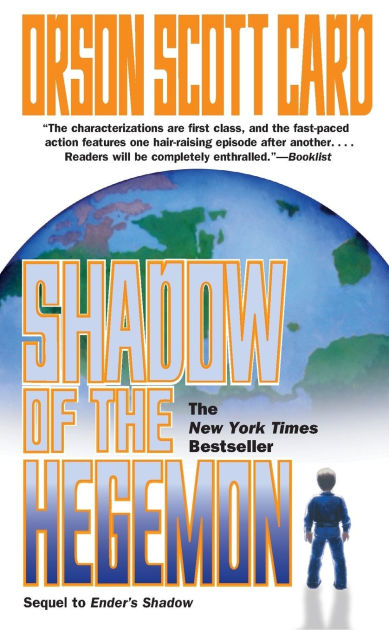
The Book Shelf
I read pretty much anything, though you'll see a lot of scifi and fantasy. I also enjoy romances, but have a hard time finding good ones.
Click on the covers to learn more about the books!
Original code by Only Wonder!
Good Omens by Terry Pratchett and Neil Gaiman
According to the Nice and Accurate Prophecies of Agnes Nutter - the world's only totally reliable guide to the future - the world will end on a Saturday. Next Saturday, in fact. Just after tea...
People have been predicting the end of the world almost from its very beginning, so it’s only natural to be sceptical when a new date is set for Judgement Day. This time though, the armies of Good and Evil really do appear to be massing. The four Bikers of the Apocalypse are hitting the road. But both the angels and demons – well, one fast-living demon and a somewhat fussy angel – would quite like the Rapture not to happen.
And someone seems to have misplaced the Antichrist…
I feel like this is such an obvious rec, but if you haven't read the book, you should. It has this quirky, ironic kind of humor that I really love and it's just a really fun read. I sped through it in a way I hadn't in a long time and haven't done since.
This is How You Lose the Time War by Amal El-Mohtar and Max Gladstone
Among the ashes of a dying world, an agent of the Commandant finds a letter. It reads: Burn before reading. Thus begins an unlikely correspondence between two rival agents hellbent on securing the best possible future for their warring factions. Now, what began as a taunt, a battlefield boast, grows into something more. Something epic. Something romantic. Something that could change the past and the future.
Except the discovery of their bond would mean death for each of them. There's still a war going on, after all. And someone has to win that war.
This was a swift read that kind of changed something chemically in my brain. It's beautiful, is what I mean. It's an odd idea: the mixing of a romeo and juliet style wartime romance and the scifi concept of a time war. The aesthetics of both the war and the romance are so paradoxically clear in what is a fairly opaque story. It felt very much like watching a puzzle come together on its own and crying the whole time for how beautiful the picture it creates is. I read it and immediately felt the urge to reread it.
Dune by Frank Herbert
Dune is set in the distant future in a feudal interstellar society, descended from terrestrial humans, in which various noble houses control planetary fiefs.
It tells the story of young Paul Atreides, whose family accepts the stewardship of the planet Arrakis. While the planet is an inhospitable and sparsely populated desert wasteland, it is the only source of melange, or "spice", a drug that extends life and enhances mental abilities.
Dune really is everything that embodies the scifi genre, and I frankly don't think the movie did it justice. It's an incredibly dense read, but entirely worth it. It tackles the entire breadth of what a story is, and I really like that about it. Not to mention, it genuinely has a lot of representation if you stop to look for it.
Ender's Shadow by Orson Scott Card
Growing up is never easy. But try living on the mean streets as a child begging for food and fighting like a dog with ruthless gangs of starving kids who wouldn't hesitate to pound your skull into pulp for a scrap of apple. If Bean has learned anything on the streets, it's how to survive. And not with fists. He is way too small for that. But with brains.
Bean is a genius with a magician's ability to zero in on his enemy and exploit his weakness.
While I do like Ender's Game, I think I'll always like Ender's Shadow better. It's the companion novel to Ender's Game and is told from the perspective of Bean. Bean is much more relatable to me than Ender ever was. I found him a much more compelling protagonist both for the militaristic, wartime setting and just in his character. He's logical and more of a survivalist than a dreamer.
The Goblin Emperor by Katherine Addison
The youngest, half-goblin son of the Emperor has lived his entire life in exile, distant from the Imperial Court and the deadly intrigue that suffuses it. But when his father and three half brothers in line for the throne are killed in an "accident," he has no choice but to take his place as the only surviving rightful heir.
Entirely unschooled in the art of court politics, he has no friends, no advisors, and the sure knowledge that whoever assassinated his father and brothers could make an attempt on his life at any moment.
I haven't even finished reading this book yet as I'm writing this, but I'm still a hundred percent confident in my rec. Here's the thing: it is not your typical novel. I've seen many bad reviews for it that I personally feel have missed the point of the book. The reviews are often correct about how it reads. It is slow, it is confusing, and the other shoe never drops. But that's my favorite part. There is no true "central conflict" as far as I've seen (and I'm currently about halfway done). Maia does not go on some grand adventure after becoming Emperor. He's too busy trying to figure out how to be the fucking Emperor. That's the whole point. The book is slow and confusing and breeds a underlying sense of anxiety because Maia's life is slow, confusing, and filled with anxiety. As a writer myself, it's amazing to see and I can only hope to emulate it.
The Ranger's Apprentice series by John Flanagan
The series follows the adventures of Will, an orphan, who is chosen as an apprentice Ranger, one of the skilled trackers, archers, and warriors in the service of the King of Araluen. Will strives to keep the Kingdom of Araluen safe from invaders, traitors, and other threats. He is joined on his adventures by his mentor, Halt, and his best friend Horace.
This is the last novel series I remember reading with eagerness. Don't let the dry summary fool you; this series is full of the excitement and peril that you crave from adventure novels. You get to watch Will go from a silly little teenager to someone very capable. Halt, his mentor, is the grumpy type and their interactions are amusing and oftentimes sweet. It's a good read for kids, but also I read it in my late teens and thought it was great. I still reread it as an adult.
Red Rising by Pierce Brown
Darrow is a Red, a member of the lowest caste in the color-coded society of the future. Like his fellow Reds, he works all day, believing that he and his people are making the surface of Mars livable for future generations.
Yet he spends his life willingly, knowing that his blood and sweat will one day result in a better world for his children.
But Darrow and his kind have been betrayed. Soon he discovers that humanity already reached the surface generations ago. Vast cities and sprawling parks spread across the planet. Darrow—and Reds like him—are nothing more than slaves to a decadent ruling class.
Inspired by a longing for justice, and driven by the memory of lost love, Darrow sacrifices everything to infiltrate the legendary Institute, a proving ground for the dominant Gold caste, where the next generation of humanity's overlords struggle for power. He will be forced to compete for his life and the very future of civilization against the best and most brutal of Society's ruling class. There, he will stop at nothing to bring down his enemies... even if it means he has to become one of them to do so.
I first read this book when I was 12 and I've been thinking of it ever since. In hindsight, an inspiration for Red Handed.
This is not a book meant for children; I don't know what my mom was thinking when she handed it to me because it is all kinds of gorey and inappropriate. But it is a fascinating, strategy-focused read about infiltrating the ruling class and tearing them down from the inside, and I loved it. It is honestly hilarious and kind of absurd at times as well, but that might just be me. It's a book that takes itself very seriously, but a single reminder that they pissed on my boy Cassius has me cackling for an hour straight. I was obsessed with that one guy that sewed himself into the stomach of a dead horse because that's unhinged and I am all about that. I never read the sequels, but maybe I should.
The Ministry of Time by Kaliane Bradley
summary
review
Shadow of the Hegemon by Orson Scott Card
The War is over, won by Ender Wiggin and his team of brilliant child-warriors. The enemy is destroyed, the human race is saved. Ender himself refuses to return to the planet, but his crew has gone home to their families, scattered across the globe. The battle school is no more.
But with the external threat gone, the Earth has become a battlefield once more. The children of the Battle School are more than heroes; they are potential weapons that can bring power to the countries that control them. One by one, all of Ender's Dragon Army are kidnapped. Only Bean escapes; and he turns for help to Ender's brother Peter.
Peter Wiggin, Ender's older brother, has already been manipulating the politics of Earth from behind the scenes. With Bean's help, he will eventually rule the world.
In hindsight, this was probably a large inspiration for Red Handed. I adored this book in the years following my first read, though I technically have never finished it. (How have I read it multiple times without finishing? I don't really know; it just happened.) Bean remains one of my favorite characters to this day and this book takes the politics of the last and turns it up a notch or ten. There's something absolutely riveting about the tactics Bean uses and the way he thinks that I'm constantly trying to emulate in my own writing. I love this book almost more than the last.